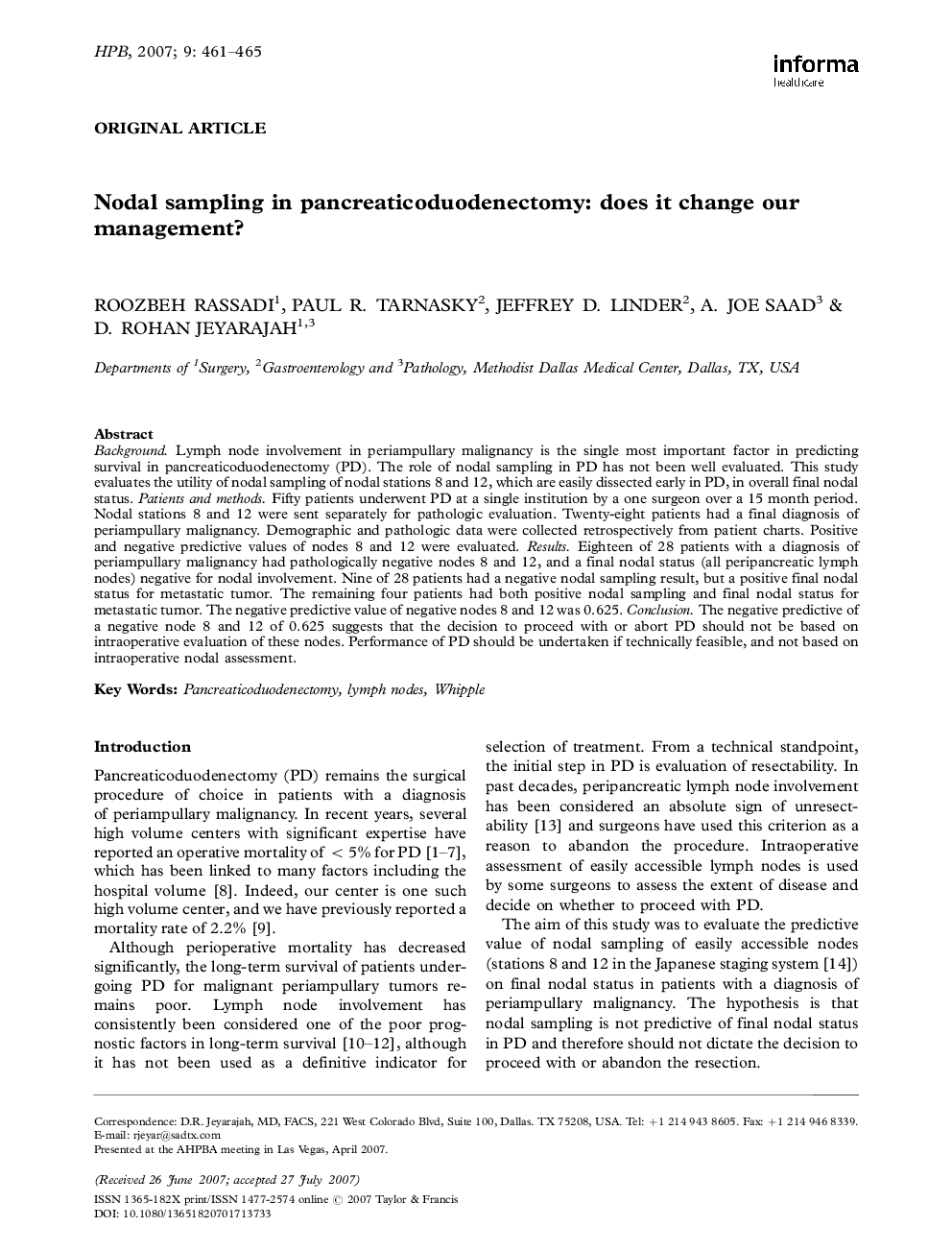| Article ID | Journal | Published Year | Pages | File Type |
|---|---|---|---|---|
| 3270329 | HPB | 2007 | 5 Pages |
Abstract
Background. Lymph node involvement in periampullary malignancy is the single most important factor in predicting survival in pancreaticoduodenectomy (PD). The role of nodal sampling in PD has not been well evaluated. This study evaluates the utility of nodal sampling of nodal stations 8 and 12, which are easily dissected early in PD, in overall final nodal status. Patients and methods. Fifty patients underwent PD at a single institution by a one surgeon over a 15 month period. Nodal stations 8 and 12 were sent separately for pathologic evaluation. Twenty-eight patients had a final diagnosis of periampullary malignancy. Demographic and pathologic data were collected retrospectively from patient charts. Positive and negative predictive values of nodes 8 and 12 were evaluated. Results. Eighteen of 28 patients with a diagnosis of periampullary malignancy had pathologically negative nodes 8 and 12, and a final nodal status (all peripancreatic lymph nodes) negative for nodal involvement. Nine of 28 patients had a negative nodal sampling result, but a positive final nodal status for metastatic tumor. The remaining four patients had both positive nodal sampling and final nodal status for metastatic tumor. The negative predictive value of negative nodes 8 and 12 was 0.625. Conclusion. The negative predictive of a negative node 8 and 12 of 0.625 suggests that the decision to proceed with or abort PD should not be based on intraoperative evaluation of these nodes. Performance of PD should be undertaken if technically feasible, and not based on intraoperative nodal assessment.
Related Topics
Health Sciences
Medicine and Dentistry
Endocrinology, Diabetes and Metabolism
Authors
Roozbeh Rassadi, Paul R. Tarnasky, Jeffrey D. Linder, A. Joe Saad, D. Rohan Jeyarajah,
